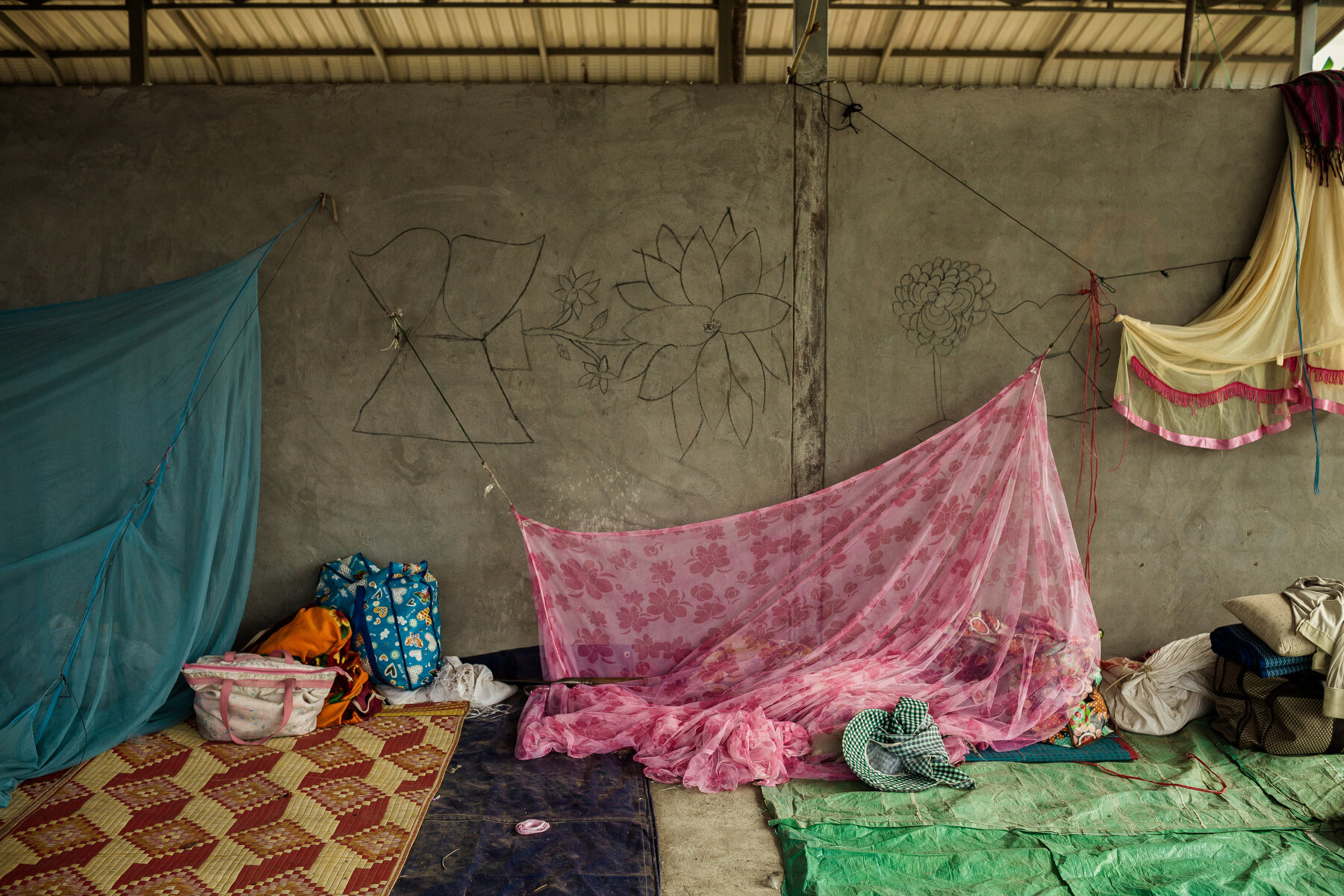Country: Cambodia · Photos: Nicolas Axelrod & Thomas Cristofoletti
Since the start of the “Everything but arms“ treaty by the European Union, Cambodia has experienced a “sugar rush”. The treaty allows for all sugar produced in Cambodia to be exempt from tax when entering the EU. The boom attracted powerful investor and since 2006, at least 75.000 hectares of land have been set aside in three provinces of Cambodia (Koh Kong, Kompong Speu and Oddar Meancheay) for the production of sugarcane.
Human rights organizations have reported that more than 12.000 people have been forced off their land to make way for this development. Crops have been razed. Animals have been shot. Homes have been burned to the ground. Thousands of people have been left destitute. Some have been thrown in jail for daring to protest. Given no option but to accept inadequate compensations, villagers gave up their homes and farmlands.
The EU is, to date, yet to investigate these reports. In the mean time, families forced off their land who have lost their only source of income, have little choice but to work for the very companies who have claimed their land, either at the factory level, or cutting and bundling sugar canes for rates as low as US$2.50 per day finding the need to request the help of their children to work the cane fields still barely earning enough money to survive. On March 2013, a lawsuit was filed in the UK against Tate&Lyle, the multi-national sugar giant, to which it has been reported the majority of exports from the Koh Kong plantation are being sent. 200 Cambodian farmers are suing the company for violating their rights as, under Cambodian law, the fruits of the land belong to the landowner (or lawful possessor in this case). According to humanitarian organizations Tate&Lyle is knowingly enriching itself off the harvest of stolen land, and the rightful owners to the harvest are not receiving their share of sugar sales.
Land ownership in Cambodia is difficult to establish, due to the country’s evolving legal and political structures following the fall of the Khmer Rouge regime, and the country is slowly trying to re-establish land titling through government programs. Though in the past and still for the time being, small-scale farmers and poor households are often forced to give up their land for little compensation. Fair development and industrialization is a struggle for this South East Asian nation, where for the right price powerful landowners, wealthy businessmen, and foreign investors have their pick of the country’s prime real estate.




































